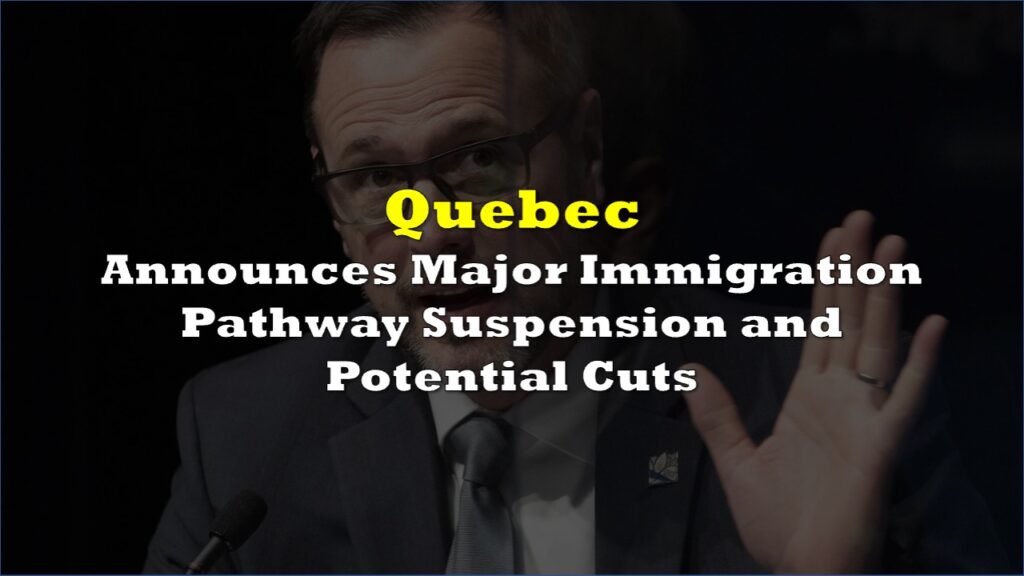Parti Québécois Leader Paul St-Pierre Plamondon, unveiling an updated version of a Year 1 budget in a news conference at Université Laval, emphasized that a recent study dismantles many traditional criticisms of Quebec’s independence prospects.
The cited study on the finances of an independent Quebec suggests that the province could become one of the world’s wealthiest nations, boasting a highly advanced economy that would thrive on local decision-making rather than relying on Ottawa’s choices.
St-Pierre Plamondon envisions a prosperous future should the Parti Québécois (PQ) assume power and secure a referendum victory, though the next election is not until October 2026.
Referred to as a conservative evaluation by PQ strategists, the revised budget offers robust data supporting the claim that Quebec could attain global recognition “at zero cost” due to the fundamental strength of its economy. Reclaiming funds sent to Ottawa would significantly bolster Quebec’s finances. St-Pierre Plamondon stressed that complete control would only “propel” Quebec further towards prosperity.
“The fact that (the new country would be) viable is not a novel concept,” St-Pierre Plamondon stated, addressing reporters. “But that would be missing an essential point: Making one’s choices based on one’s own interests is certainly more intelligent than making choices based on competing interests (of other provinces).”
Discussing potential relations with the rest of Canada post-independence, St-Pierre Plamondon envisioned a “friendly neighbor” dynamic, akin to the relationships between Slovakia and the Czech Republic or Norway and Sweden, emphasizing that respect for one another as distinct peoples would be key.
Big spender Ottawa
The PQ’s analysts employed a model similar to one used by François Legault, now Premier of Quebec and leader of the Coalition Avenir Québec, in 2005. Legault had previously endorsed sovereignty as not just relevant but urgent. While several budget figures had been disclosed prior to the report’s release, the document sheds light on the evolution of federalism since the PQ’s last two referendum attempts in 1980 and 1995.
It characterizes modern Ottawa as a big spender, particularly in areas of provincial jurisdiction, allocating resources to services of limited or no relevance to Quebec, such as fossil fuel development, Atlantic shipyards, and battery plants in Ontario. The recent passport renewal fiasco exemplifies the decline in federal services.
It is worth noting that despite the fact that Quebec contributes to the federal budget, the province also receives transfer payment from the rest of the country, the size of which is significant to Quebec’s provincial budget.
Quebec budgeted $29.7 billion in federal transfers in 2023-24, representing about 20% of its budget.
— Steve Faguy (@fagstein) October 24, 2023
During Prime Minister Justin Trudeau’s tenure, the federal debt doubled, accompanied by a 40% expansion of the government, with limited service improvements. The proposed solution involves reducing Ottawa’s role in Quebec and reinvesting the savings. Eliminating overlapping jurisdictions between the two levels of government alone would add $8.8 billion to Quebec’s coffers, and by 2024, an independent Quebec would reclaim a total of $82.3 billion in tax revenue and fees currently sent to Ottawa.
To address concerns about the loss of equalization payments, the PQ budget contends that Legault’s argument is “intellectually dishonest” as it fails to consider the amount of money Quebec sends to Ottawa. The net equalization payment amount, it argues, is actually $9.6 billion.
As a nation, Quebec would assume 19.81% of the national debt, in addition to the existing Quebec debt. The new country would have to manage a total of $397 billion in bond market financing—$185 billion from the federal government and $212 billion provincially. From a debt-to-GDP ratio perspective, Quebec would rank second in the G7, just behind Germany.
“The starting point of Quebec (on debt ratio) is very, very comfortable compared to the world,” St-Pierre Plamondon noted.
Regarding the provincial deficit, the Year 1 budget anticipates a $12 billion deficit for Quebec in 2023-24, which would decrease to $10.2 billion as an independent nation. Supported by detailed data and insights from half a dozen experts, some choosing to remain anonymous for professional reasons, the report concludes that an independent Quebec’s financial standing would align with the G7, the world’s most prosperous and advanced countries.
St-Pierre Plamondon rested his confidence on a traditional PQ argument for achieving these goals, highlighting that economic interests would drive negotiations once a “Yes” vote secures independence. The PQ’s program commits to holding a sovereignty referendum within its first term in office.
“You need to distinguish what will be said before the vote and what will be done after Quebec becomes a country,” he explained. “Once the country is confirmed, it’s just a reality. Of course, everybody will want business to continue, profits to be made. Everybody will seek stability. Our posture will be in good faith and seek as much cooperation as possible.”
Premier François Legault offered no formal response, having previously criticized the PQ’s plan as out of touch with the people’s priorities. Québec solidaire, the other pro-independence opposition party, praised the PQ’s work, emphasizing the economic viability of an independent Quebec. Interim Liberal leader Marc Tanguay, however, expressed skepticism on social media, citing excessive optimism and underestimations in the PQ’s projections.
Information for this briefing was found via Montreal Gazette and the sources mentioned. The author has no securities or affiliations related to this organization. Not a recommendation to buy or sell. Always do additional research and consult a professional before purchasing a security. The author holds no licenses.









